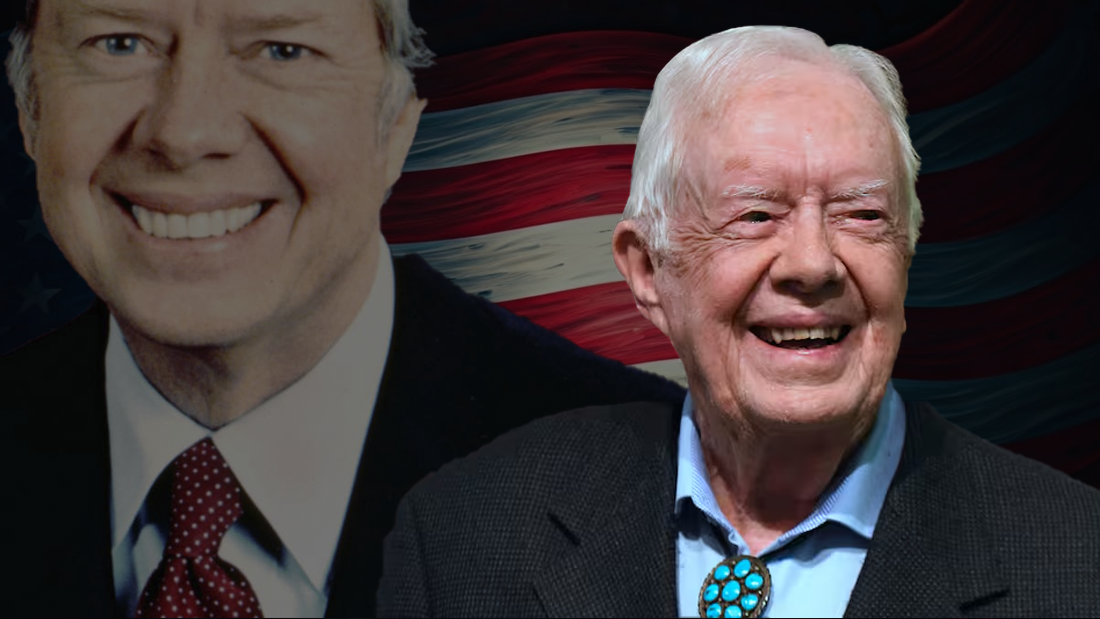
Jimmy Carter: the First Former US President to Turn 100
Sometimes, the most powerful leaders don’t shout. They build, heal, and guide—even long after they leave office.
Not Your Usual President
You ever notice how some people just keep showing up for others—even when no one’s watching?
That’s Jimmy Carter.
He didn’t become famous for big speeches or grandstanding. What made him different is what came after the spotlight faded. And somehow, that’s where his story really began.
From Georgia Roots to Global Respect
Before he was President Carter, he was just Jimmy from Plains, Georgia. He was born in 1924, into a modest life during the Great Depression. Times were hard. But that hardship? It didn’t make him bitter—it made him better.
- Graduated from the U.S. Naval Academy
- Served in the Navy with honor
- Returned home to run his family’s peanut farm
This wasn’t just about making a living. It planted the seed for something much bigger—a career rooted in service, not self-interest.
By the 1970s, Carter was governor of Georgia, where he backed civil rights when doing so wasn’t politically convenient. That’s integrity—and Americans remembered it. When the nation was still licking its wounds from the Watergate scandal, Carter came along promising honesty.
He won the 1976 election by being one thing: real.
A Presidency Anchored in Peace and Principle
Carter’s presidency wasn’t easy. There was economic turbulence. A hostage crisis in Iran. But even through all of it, he kept his focus: people, peace, and doing the right thing.
His proudest achievements?
- The Camp David Accords: He brought Egypt and Israel to the table and helped broker peace.
- The Panama Canal Treaty: A bold move that improved U.S. relations with Latin America.
- A new standard for human rights in foreign policy—an approach that would later inspire leaders like Clinton and Obama.
Carter’s time in office wasn’t about winning popularity points. It was about planting long-lasting values in American diplomacy.
Post-Presidency? More Like a New Beginning
And then came the part that really sets Carter apart.
After he left the White House, he didn’t cash in. He rolled up his sleeves. In 1982, he launched The Carter Center, focused on:
- Global health
- Democracy and election monitoring
- Conflict resolution in crisis regions
He helped bring Guinea worm disease to the brink of eradication—saving millions from needless suffering. He built homes with Habitat for Humanity, not just with his name—but with his own two hands.
Even into his 90s, Carter stayed committed to helping others. No spotlight needed.
Carter’s Legacy: A Blueprint for Servant Leadership
Jimmy Carter’s impact didn’t end with a presidency. It echoes.
- Diplomatic influence: His peace-first mindset shaped future presidents.
- Election integrity: The Carter Center helped safeguard democratic elections in fragile countries.
- Humanitarian focus: He redefined what it means to serve—without needing to lead.
“Jimmy Carter didn’t just serve—he stayed.”
As Carter reaches the 100-year milestone, he stands not just as a former president, but as a living example of quiet, unshakable purpose.
Final Thoughts
Jimmy Carter’s life reminds us: You don’t have to be loud to be powerful. Integrity, humility, and dedication leave a deeper mark than headlines.
At Stan Flag Poles, we believe in standing tall for the values that matter—freedom, honor, and quiet service. And there’s no better example of that than President Carter.
Thanks for reading. If you found Carter’s story as inspiring as we do, share it with someone who believes in doing good quietly, and with pride.


















